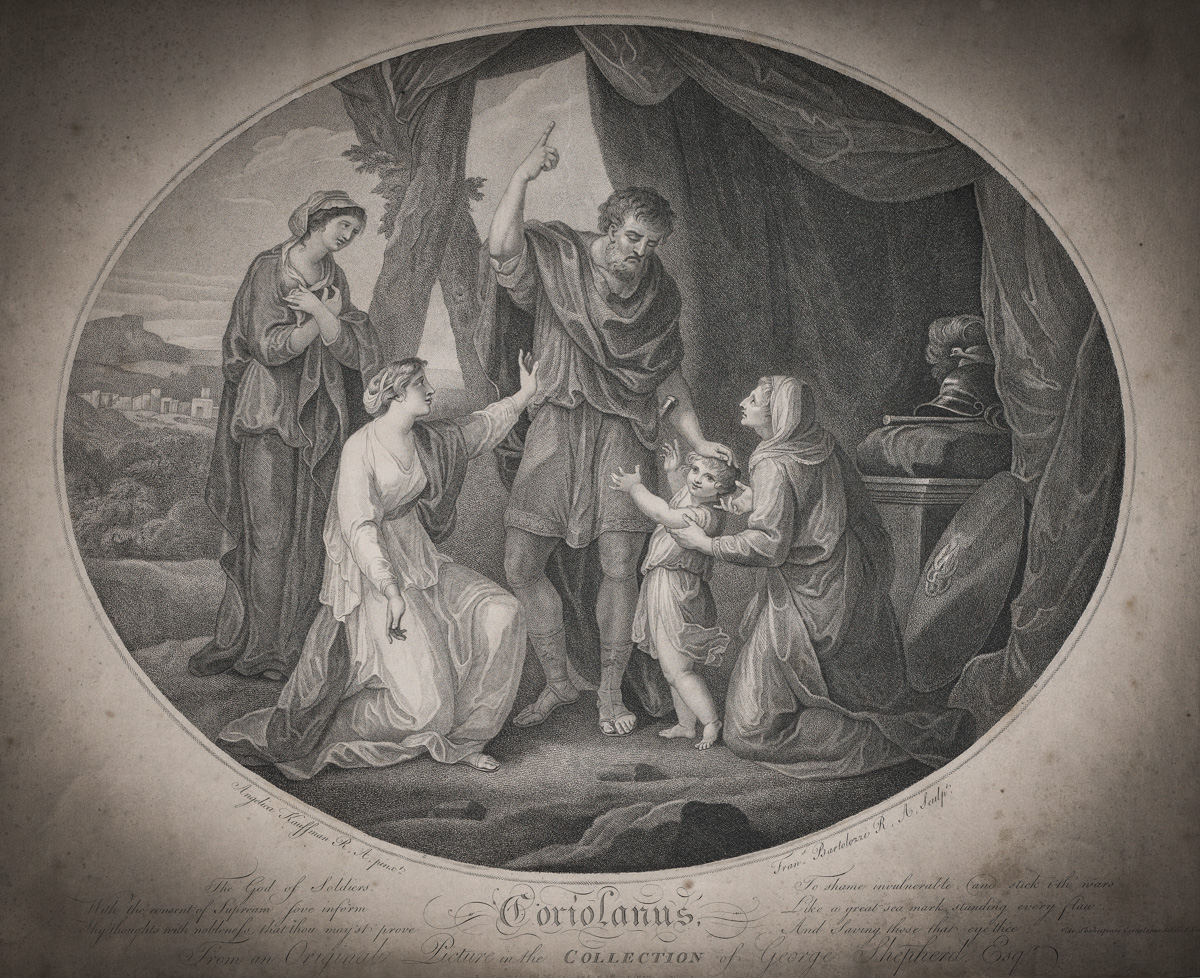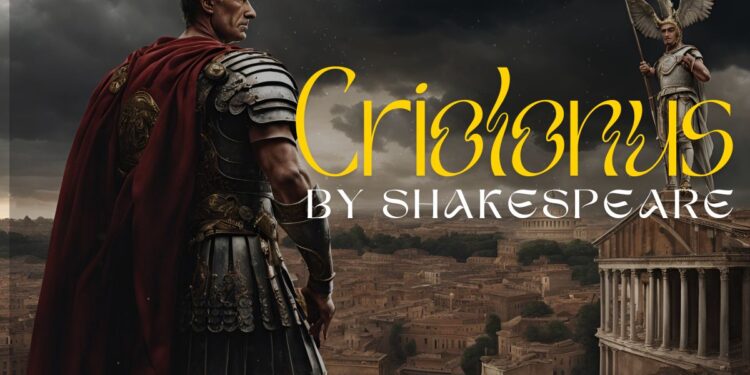Introduction to Coriolanus
Coriolanus is one of William Shakespeare’s later tragedies, written around 1605-1608. The play is based on the life of the historical figure Gaius Marcius Coriolanus, a Roman general whose pride and unyielding nature led to both his rise to power and eventual tragic downfall. The play examines themes of pride, honor, political power, class struggle, loyalty, and vengeance. It is a deeply political drama that critiques the dynamics between rulers and the ruled, and the relationship between personal integrity and public perception.
Setting
Coriolanus By William Shakespeare Summary And Themes The setting of Coriolanus is ancient Rome, a republic teetering between political unrest and military conquests. The play focuses on the social and political tensions within the city, specifically examining the class conflict between the aristocratic class (patricians) and the common people (plebeians), as well as the internal struggle of Coriolanus, a figure caught between his valor as a soldier and his inability to engage in the complexities of Roman politics.

Plot Summary
Act 1: Coriolanus’ Victory and Political Ambition
Coriolanus By William Shakespeare Summary And Themes The play opens with the people of Rome in a state of discontent, suffering from a famine and angry at the aristocratic class. The common people, led by two tribunes (Sicinius and Brutus), riot and demand that the government address their grievances. At this time, the Roman general Coriolanus is fighting the Volscians, led by the general Aufidius.
Coriolanus is portrayed as a great warrior, known for his physical prowess and courage on the battlefield. His loyalty to Rome and his military achievements lead to his being hailed as a hero. However, his personality is complex. He is proud, disdainful of the common people, and believes that honor is earned only through battle, not through words or pleasantries. His haughty nature is shown when he refuses to ingratiate himself with the plebeians, whom he views as inferior and unworthy of political power.
After the battle at Corioles, where Coriolanus defeats the Volscians, he is given the title “Coriolanus” as a mark of honor. This title serves as both a symbol of his military achievements and as an anchor for his growing arrogance. The Senate and his mother, Volumnia, encourage him to seek the consulship of Rome. However, Coriolanus’ contempt for the plebeians makes him an unlikely candidate for the position. When it is suggested that he should speak in front of the plebeians to win their votes, he refuses, believing that his battlefield glory should be enough to secure his election.Coriolanus By William Shakespeare Summary And Themes
Act 2: The Tribunes and the Plebeians
The tribunes Sicinius and Brutus take advantage of Coriolanus’ unyielding attitude and turn the plebeians against him. They accuse him of contempt and arrogance toward the common people and manipulate public opinion. Despite his military fame, Coriolanus fails to understand the importance of public relations and the need to show humility in order to win political power.
Coriolanus, feeling betrayed by the people he fought for, becomes enraged when the tribunes incite the masses to revoke his candidacy for consul. His inability to disguise his disdain for the plebeians leads to his political downfall. The senators, recognizing that Coriolanus is a liability, decide to exile him from Rome. This is a turning point in the play—Coriolanus goes from a heroic general to an outcast, isolated from the very city he once defended.
Act 3: Coriolanus’ Exile and Alliances
Coriolanus By William Shakespeare Summary And Themes After his exile, Coriolanus is consumed by rage and humiliation. He takes refuge with his former enemy, Aufidius, the leader of the Volscians. Together, they form an alliance, and Coriolanus decides to wage war on Rome. His pride and desire for vengeance overshadow any notions of loyalty to his country, as he seeks to destroy the very city that once celebrated him as a hero.
Coriolanus By William Shakespeare Summary And Themes With Aufidius’ help, Coriolanus begins to lay siege to Rome, and the city is thrown into turmoil. The Roman senators, now desperate, send a delegation to negotiate peace. This delegation includes Coriolanus’ mother, Volumnia, his wife, Virgilia, and his son. Volumnia, a strong and persuasive character, is the key to convincing her son to spare Rome. In a moving scene, Volumnia appeals to Coriolanus’ sense of honor, reminding him of his family, his loyalty to Rome, and the cost of his pride.
Act 4: Coriolanus’ Decision to Spare Rome
Coriolanus By William Shakespeare Summary And Themes Despite the pressure from Aufidius and the Volscian forces, Coriolanus agrees to spare Rome in exchange for political power in the Volscian lands. This decision represents a moment of self-reflection, where Coriolanus chooses to listen to his family and values family loyalty over personal glory. However, this act of mercy does not sit well with Aufidius and the Volscian soldiers, who view Coriolanus’ actions as a betrayal.
Act 5: Coriolanus’ Death
The Volscians, incensed by Coriolanus’ change of heart, turn on him. Aufidius leads a conspiracy to murder Coriolanus, and the general is killed by his own men. In the end, Coriolanus dies a tragic hero, caught between his pride, loyalty to his family, and desire for vengeance. His death signifies the destructive nature of hubris and pride, as well as the tragic consequences of personal and political conflicts.Coriolanus By William Shakespeare Summary And Themes

Themes in Coriolanus
- Pride and Hubris
Coriolanus By William Shakespeare Summary And Themes One of the central themes in Coriolanus is the role of pride and hubris in the downfall of individuals. Coriolanus is an extremely proud and honorable man, but his inability to humble himself leads to his destruction. His sense of superiority prevents him from navigating the political landscape of Rome, where compromise and humility are necessary to gain support.
His pride is not simply personal vanity; it is deeply tied to his sense of honor as a soldier. This concept of “honor” is central to the Roman idea of virtue, yet Coriolanus’ obsession with it blinds him to the realities of political life, leading him to alienate those who would otherwise support him. His refusal to flatter the plebeians, who represent the masses, ultimately results in his fall from grace.
- The Tension Between the Patricians and Plebeians
Coriolanus By William Shakespeare Summary And Themes The play portrays a stark division between the ruling class (the patricians) and the common people (the plebeians). Coriolanus is a soldier who defends Rome but has utter contempt for the plebeians, believing them to be unworthy of political power. However, when Coriolanus refuses to engage with the plebeians, he finds himself isolated from the political process, and they turn on him.
Coriolanus By William Shakespeare Summary And Themes The tribunes, Sicinius and Brutus, represent the voice of the plebeians, using their power to manipulate the people and overthrow the aristocracy. This class conflict is one of the play’s central issues, with Coriolanus’ downfall demonstrating the danger of ignoring the desires and concerns of the common people.
- Loyalty and Family
Coriolanus By William Shakespeare Summary And Themes Loyalty to family and country is another key theme. Coriolanus’ relationship with his mother, Volumnia, is a driving force in the play. Volumnia pushes her son to pursue glory and political power, but she also plays a pivotal role in the final act when she convinces him to spare Rome. Her influence over Coriolanus highlights the power of family bonds, even in the face of political and military ambition.
Coriolanus By William Shakespeare Summary And Themes Additionally, Coriolanus’ wife, Virgilia, represents loyalty to her husband, even as he chooses political vengeance over family ties. Her role underscores the tension between personal and public loyalty.
- The Corrupting Nature of Political Power
Coriolanus By William Shakespeare Summary And Themes Political power is shown to be a double-edged sword in Coriolanus. The tribunes manipulate the masses for their own political gain, while the senators struggle to maintain control over a volatile public. Coriolanus’ initial rejection of political power stems from his belief that honor should come from military achievement alone, but his exile demonstrates the fragility of political power. Shakespeare critiques both the aristocracy’s reliance on military might and the plebeians’ vulnerability to manipulation by politicians.
- Betrayal and Revenge
Coriolanus By William Shakespeare Summary And Themes Coriolanus’ actions are motivated by revenge against Rome, but this thirst for vengeance ultimately leads to his undoing. After being exiled, he allies with his former enemy, Aufidius, in order to destroy Rome. However, when he ultimately chooses to spare Rome, Aufidius betrays him, seeing Coriolanus as a rival. This theme of betrayal underscores the fragile nature of political alliances and the consequences of choosing revenge over reconciliation.
READ MORE
Character Analysis
- Coriolanus: The tragic hero of the play, Coriolanus is defined by his pride, valor, and disdain for the common people. His arrogance and unwillingness to compromise are his fatal flaws, leading to his political isolation and eventual death.Coriolanus By William Shakespeare Summary And Themes
- Volumnia: Coriolanus’ mother, Volumnia is a complex character. She embodies Roman ideals of duty and honor but also has a deep emotional connection to her son. Her persuasion and appeal to Coriolanus’ sense of familial loyalty are key to the resolution of the play.
- Aufidius: The Volscian general, Aufidius is Coriolanus’ rival. Though initially respectful of Coriolanus’ military prowess, he ultimately becomes Coriolanus’ betrayer, highlighting the volatile nature of alliances in the pursuit of power.Coriolanus By William Shakespeare Summary And Themes
- Virgilia: Coriolanus’ wife, Virgilia is a symbol of loyalty and suffering. She is largely passive in the play but represents the domestic and personal sacrifices made by those closest to Coriolanus.Coriolanus By William Shakespeare Summary And Themes
FAQ
Q1: What is the central theme of Coriolanus?
The central theme is the conflict between personal pride and the demands of political and social life. Coriolanus’ pride and arrogance prevent him from understanding and navigating the political landscape of Rome, leading to his eventual downfall.Coriolanus By William Shakespeare Summary And Themes
Q2: Who is Coriolanus’ main enemy in the play?
Coriolanus’ main enemy is Aufidius, the Volscian general. Though initially Coriolanus and Aufidius share mutual respect, Aufidius becomes Coriolanus’ foe after their alliance breaks down, and he ultimately betrays him.
Q3: How does Coriolanus die?
Coriolanus is killed by the Volscians, who see him as a traitor after he spares Rome. Aufidius, feeling dishonored, leads the conspiracy to murder Coriolanus.
Q4: What role does Volumnia play in the play?
Volumnia is Coriolanus’ mother, and she plays a crucial role in the final act of the play. She persuades her son to spare Rome by appealing to his familial loyalty, which ultimately leads him to withdraw his forces.
Q5: What does Coriolanus say about the relationship between leaders and the people?
The play critiques the power dynamics between leaders and the masses, particularly the way leaders must balance personal pride with the need for popular support. Coriolanus’ disdain for the plebeians ultimately costs him his political and personal future.Coriolanus By William Shakespeare Summary And Themes
READ MORE
















